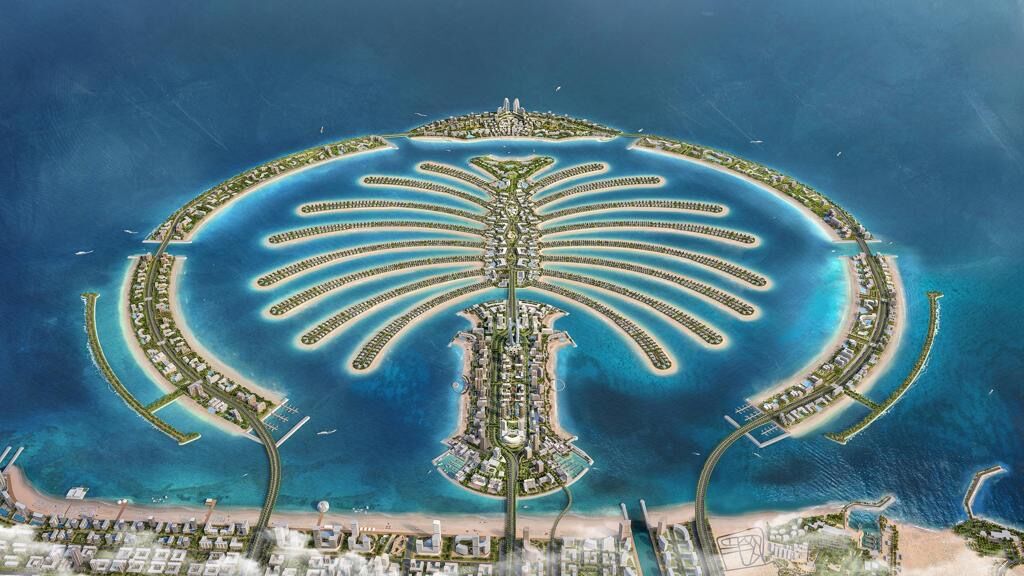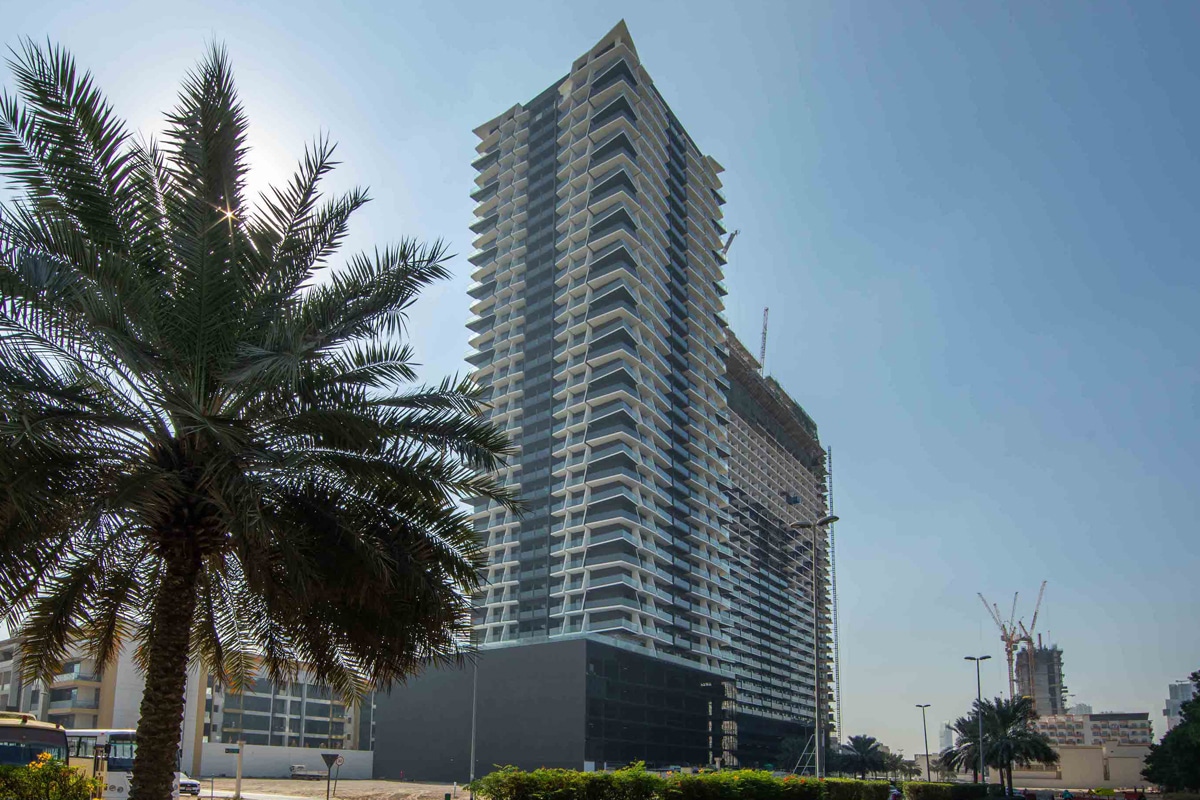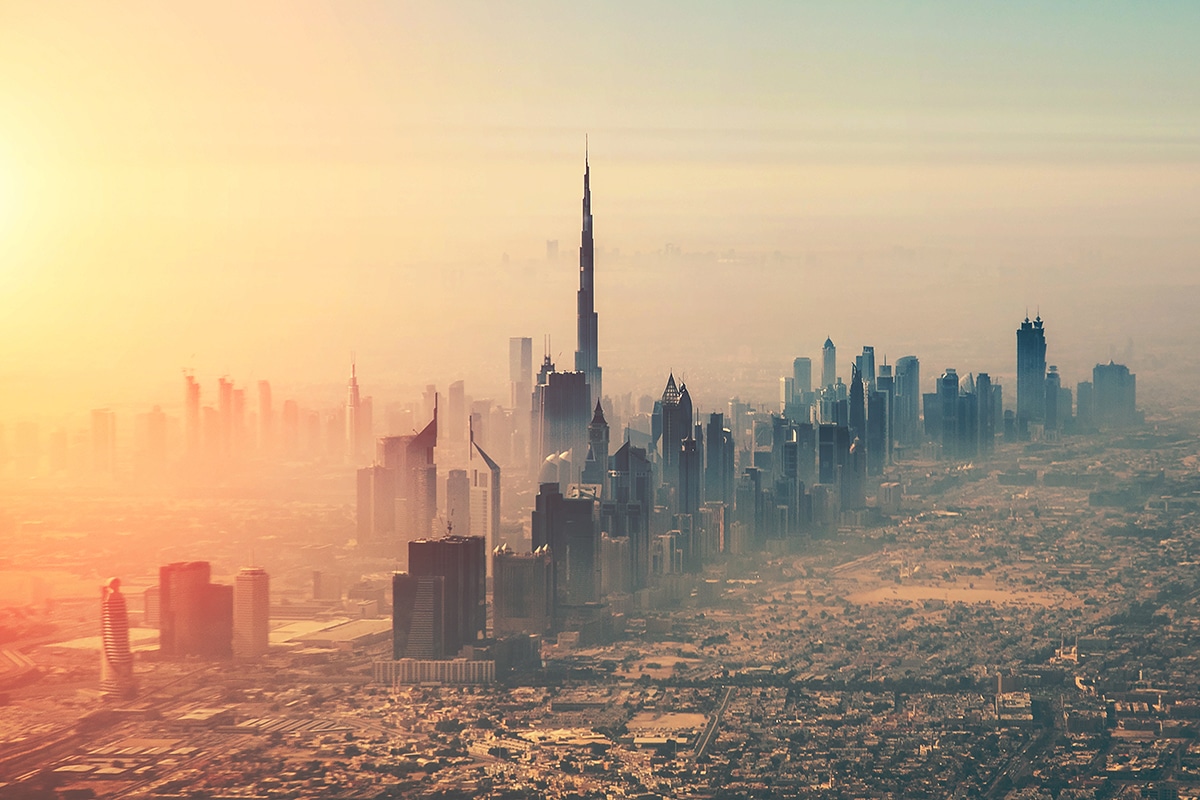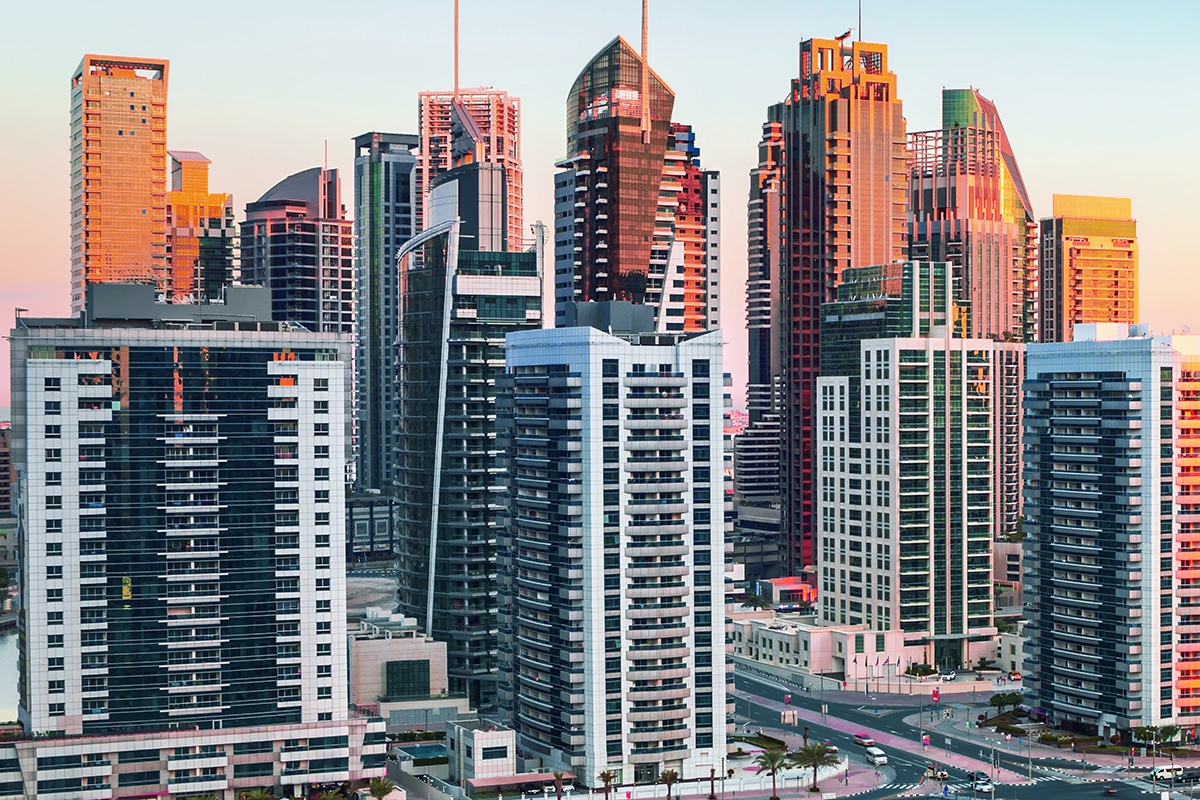Mureed Mustafa, Director of Operations at Dubai Land Department highlights their digital platform Dubai REST that allows customers to conduct transactions 24/7 online. The company saved notable amounts of carbon emissions, equivalent to conserving billions of trees.
Month: July 2024
Recent Blogs
Dubai’s real estate market offers a diverse range of opportunities, from ultra-luxurious waterfront properties to vibrant urban developments. With so many options available, choosing the right location for your property investment can be overwhelming. To help you make an informed decision, here’s a look at some of the best places to buy property in Dubai, each offering unique benefits and investment potential.
1. Downtown Dubai
Why It’s Great:
Iconic Landmarks: Home to the Burj Khalifa, Dubai Mall, and Dubai Fountain, Downtown Dubai is one of the most sought-after locations.
Luxury Living: High-end residential properties with stunning views and premium amenities.
Strong Rental Demand: Constant influx of tourists and business professionals ensures high rental yields.
Ideal For:
Investors seeking premium properties and high rental income.
Those interested in living near major landmarks and amenities.
2. Dubai Marina
Why It’s Great:
Waterfront Lifestyle: Dubai Marina offers stunning waterfront views and a vibrant marina lifestyle with a plethora of restaurants, cafes, and leisure activities.
Modern Apartments: A range of modern, high-rise apartment buildings with exceptional facilities.
Accessibility: Well-connected by public transport and close to major business hubs.
Ideal For:
Young professionals and expatriates looking for a lively, modern lifestyle.
Investors aiming for strong rental yields and capital appreciation.
3. Palm Jumeirah
Why It’s Great:
Luxury Living: Famous for its exclusive villas and high-end apartments, Palm Jumeirah offers a luxurious lifestyle with private beaches and five-star resorts.
Unique Architecture: The palm-shaped island is an architectural marvel with some of the most sought-after properties in Dubai.
High Property Values: Strong potential for capital growth due to its prestigious status.
Ideal For:
Buyers looking for upscale, beachfront properties and a prestigious address.
Long-term investors aiming for high capital appreciation.
4. Jumeirah Village Circle (JVC)
Why It’s Great:
Affordability: Offers a more affordable entry point compared to luxury areas while still providing high-quality living spaces.
Family-Friendly: Designed with families in mind, featuring parks, schools, and community amenities.
Growing Demand: Increasing popularity among residents and investors due to ongoing development.
Ideal For:
Families and first-time investors seeking value for money and a well-planned community.
Those looking for properties with good rental yields and growth potential.
5. Dubai Hills Estate
Why It’s Great:
Green Spaces: Known for its extensive parks and green spaces, Dubai Hills Estate offers a refreshing contrast to the city’s urban landscape.
High-End Developments: Features luxury villas, townhouses, and apartments with access to the Dubai Hills Golf Course and other premium amenities.
Strategic Location: Centrally located with easy access to major roads and business districts.
Ideal For:
Investors seeking upscale, suburban living with a focus on community and green spaces.
Buyers looking for family-friendly neighborhoods with high-end amenities.
6. Business Bay
Why It’s Great:
Business Hub: As a major commercial district, Business Bay offers a mix of residential and commercial properties, appealing to professionals and investors.
Modern Infrastructure: Features modern high-rises with exceptional amenities and views of the Dubai Canal.
Strategic Location: Close to Downtown Dubai and well-connected by major roadways.
Ideal For:
Professionals working in the area or those seeking proximity to major business centers.
Investors interested in a mix of residential and commercial opportunities.
7. Dubai South
Why It’s Great:
Future Growth: Designed as a major urban development with the Expo 2020 site, Dubai South is expected to see significant growth and infrastructure development.
Affordable Options: Offers a range of more affordable property options compared to central Dubai.
Strategic Location: Located near Al Maktoum International Airport and major transport links.
Ideal For:
Investors looking for growth potential in emerging areas.
Buyers seeking more affordable properties with long-term capital appreciation.
Conclusion:
Dubai’s real estate market offers something for every type of investor, from luxurious waterfront properties to family-friendly communities. Whether you’re drawn to the iconic landmarks of Downtown Dubai, the modern lifestyle of Dubai Marina, or the upscale living of Palm Jumeirah, each neighborhood has its unique appeal and investment potential.
When choosing the best place to buy property in Dubai, consider your investment goals, lifestyle preferences, and budget. By aligning these factors with the strengths of each neighborhood, you can make a well-informed decision and maximize the potential of your property investment in this dynamic city.
Recent Blogs
Dubai, renowned for its dazzling skyline and robust economy, is a prime destination for real estate investment. If you’re a foreigner contemplating a property purchase in this vibrant city, you’re in luck—Dubai’s real estate market is open to international buyers. However, there are specific regulations and processes to understand before diving in. This blog will guide you through the essentials of buying property in Dubai as a foreigner.
Property Ownership for Foreigners: The Basics
Freehold vs. Leasehold Areas
Foreigners can purchase property in Dubai primarily through two types of ownership:
Freehold Areas: These are designated zones where foreigners can own property outright. Popular freehold areas include Downtown Dubai, Dubai Marina, Palm Jumeirah, and Jumeirah Village Circle (JVC). Freehold ownership means you own both the property and the land it’s on.
Leasehold Areas: In leasehold zones, foreigners can lease property for up to 99 years but do not own the land. This option is less common and typically involves properties from government or semi-government developers.
Types of Properties Available
Foreigners can invest in various types of properties, including:
Residential Properties: Apartments, villas, and townhouses in freehold areas.
Commercial Properties: Office spaces and retail units, though commercial property ownership may come with different regulations.
Mixed-Use Developments: Properties that combine residential, commercial, and retail spaces.
Key Regulations and Requirements
Property Registration
All property transactions in Dubai must be registered with the Dubai Land Department (DLD). This process ensures that the property transfer is legally recognized and officially recorded.
Golden Visa Program
Dubai’s Golden Visa program offers long-term residency for investors who meet specific criteria. This program can be advantageous if you’re considering a long-term stay or want additional residency benefits.
Legal and Financial Considerations
Legal Representation: Engaging a local legal advisor is crucial. They can assist with contract review, legal documentation, and ensure compliance with Dubai’s regulations.
Financing Options: Foreign buyers can often obtain mortgages from UAE banks, though terms may vary. It’s important to compare different financing options and understand the requirements.
Additional Costs: Be aware of extra costs such as registration fees, real estate agent commissions, and maintenance charges. These can vary depending on the property and developer.
Benefits of Investing in Dubai Real Estate
Tax Advantages
Dubai offers a tax-friendly environment with no property tax, capital gains tax, or inheritance tax. These benefits can significantly enhance your return on investment.
High Rental Yields
Dubai’s real estate market is known for high rental yields, often ranging from 5% to 8%, depending on the location and type of property. This makes it an attractive option for generating rental income.
Quality of Life
Dubai boasts a high standard of living with luxurious amenities, excellent infrastructure, and a safe, clean environment. The city’s appeal as a global business hub and tourist destination further boosts property demand.
The Buying Process
Research and Selection
Start by researching the Dubai real estate market. Focus on areas that match your investment goals and property types that interest you. Working with a reputable real estate agent can help streamline the process and identify suitable options.
Legal and Financial Steps
Hire a Lawyer: A legal expert will assist with reviewing contracts, ensuring compliance, and navigating the purchase process.
Secure Financing: Arrange financing through UAE banks if needed. Understand the terms and ensure they align with your financial plans.
Complete the Purchase: Once you’ve selected a property and secured financing, proceed with the purchase. This involves signing the sale agreement, transferring funds, and registering the property with the DLD.
Property Management
If you’re not living in Dubai, consider hiring a property management company to handle day-to-day operations, maintenance, and tenant relations.
Conclusion:
Yes, foreigners can buy property in Dubai, and the process is relatively straightforward with proper guidance. By understanding the regulations, benefits, and financial considerations, you can make an informed decision about investing in Dubai’s thriving real estate market. Whether you’re looking for a lucrative investment, a luxurious vacation home, or a strategic business property, Dubai offers a wealth of opportunities for international buyers.
With its favorable tax environment, high rental yields, and exceptional quality of life, Dubai remains a top destination for property investment. By partnering with local experts and thoroughly researching the market, you can navigate the buying process and take full advantage of what this dynamic city has to offer.
Recent Blogs
1. Understanding the Risks
While the Dubai real estate market offers many advantages, it is not without its risks. Understanding these potential pitfalls is crucial for making informed investment decisions:
Market Fluctuations: Dubai’s real estate market can experience significant fluctuations. Factors like changes in oil prices, global economic conditions, and regional political developments can impact property values and rental yields.
Oversupply Concerns: At times, Dubai has faced concerns about over-supply in certain segments of the market, particularly in the luxury sector. It’s essential to analyze market trends and demand before investing in high-end properties.
Regulatory Changes: While Dubai has a relatively stable regulatory environment, changes in property laws and regulations can occur. Staying updated with any new developments or regulatory shifts is crucial to ensure compliance and avoid unforeseen issues.
Economic Dependency: Despite its diversification efforts, Dubai’s economy is still somewhat influenced by global oil markets. Economic downturns or fluctuations in oil prices can indirectly affect the real estate market.
2. Evaluating the Rewards
The rewards of investing in Dubai’s real estate market can be substantial if approached strategically:
Appreciation Potential: Dubai’s real estate market has shown a strong track record of long-term appreciation. Despite short-term volatility, prime locations and well-managed properties have historically seen significant value increases over time.
High Demand for Rental Properties: The city’s status as a global business hub and tourist destination drives a high demand for rental properties. This consistent demand can provide steady rental income and reduced vacancy rates.
Diverse Investment Opportunities: Dubai’s real estate market offers a range of investment options, from luxury residences and high-rise apartments to commercial properties and mixed-use developments. This diversity allows investors to choose opportunities that align with their investment goals.
World-Class Infrastructure: Dubai’s commitment to world-class infrastructure, including transportation networks, healthcare facilities, and educational institutions, enhances the overall appeal of the city’s real estate market.
Steps to Invest in Dubai Real Estate
1. Research and Planning
Market Analysis: Conduct thorough research on the Dubai real estate market, including trends, property types, and locations. Analyze recent sales data, rental yields, and future development plans to make an informed decision.
Investment Goals: Define your investment goals, whether it’s generating rental income, capital appreciation, or a combination of both. Your objectives will guide your property selection and investment strategy.
2. Consult Professionals
Real Estate Agents: Engage with reputable real estate agents who have in-depth knowledge of the Dubai market. They can provide valuable insights, property recommendations, and assist with negotiations.
Legal Advisors: Consult with legal experts familiar with Dubai’s real estate laws and regulations. They can help with property transactions, legal documentation, and ensuring compliance with local laws.
Financial Advisors: Seek advice from financial advisors to understand financing options, tax implications, and overall investment strategy. They can help optimize your financial planning and investment structure.
3. Property Selection
Location: Choose a location that aligns with your investment goals. Popular areas include Downtown Dubai, Dubai Marina, and Palm Jumeirah for luxury properties, while areas like Jumeirah Village Circle (JVC) and Dubai South offer more affordable options.
Property Type: Decide on the type of property that suits your investment strategy, whether it’s residential, commercial, or mixed-use. Each type has different considerations regarding demand, rental yields, and maintenance costs.
Developer Reputation: If investing in off-plan properties, research the developer’s reputation and track record. Established developers with a history of delivering quality projects can provide greater assurance of successful investment outcomes.
4. Financing and Purchase
Secure Financing: Explore financing options available to you, including mortgage rates and terms. Compare offers from different banks and financial institutions to find the best deal.
Due Diligence: Conduct due diligence on the property, including checking its legal status, ownership records, and any outstanding obligations. Ensure that the property is free from legal disputes and encumbrances.
Complete the Purchase: Once you’ve selected a property and secured financing, complete the purchase process. This includes signing the sale agreement, transferring ownership, and registering the property with the Dubai Land Department.
Conclusion:
Investing in real estate in Dubai presents both opportunities and challenges. With its robust economic growth, favorable tax environment, high rental yields, and global appeal, Dubai remains an attractive destination for real estate investors. However, understanding the risks, evaluating the rewards, and following a strategic investment approach are essential for success.
Whether you’re looking for high rental income, long-term capital appreciation, or a combination of both, Dubai’s real estate market offers diverse options to suit different investment goals. By conducting thorough research, consulting with professionals, and carefully selecting properties, you can navigate Dubai’s real estate landscape and capitalize on its potential.
Ultimately, Dubai’s unique blend of luxury, innovation, and economic stability makes it a compelling choice for real estate investment, offering the potential for substantial returns and long-term growth.
Recent Blogs
Dubai, with its glitzy skyline, world-class amenities, and booming economy, has long been a magnet for international investors. But is investing in real estate in Dubai a sound financial decision? Whether you’re a seasoned investor or a curious newcomer, this blog aims to provide a detailed overview of what to consider when evaluating real estate opportunities in this dynamic city.
The Allure of Dubai’s Real Estate Market
1. Economic Stability and Growth
Dubai’s economy has seen remarkable growth over the past few decades, transitioning from a reliance on oil to becoming a diversified hub for business and tourism. The city’s strategic location, between Europe, Asia, and Africa, further enhances its appeal as a global business center. This economic stability is a key factor that makes Dubai’s real estate market attractive to investors.
2. Tax Benefits
One of the most enticing aspects of investing in Dubai is the tax-friendly environment. There’s no property tax, no capital gains tax, and no inheritance tax, which can significantly enhance the overall return on investment (ROI). For many investors, these tax advantages alone make Dubai a compelling choice.
3. High Rental Yields
Dubai is known for its high rental yields compared to other major cities around the world. Depending on the location and type of property, yields can range from 5% to 8%, which is notably higher than many other international markets. This strong rental income potential can make Dubai an appealing option for buy-to-let investors.
4. Global Appeal
Dubai’s real estate market attracts a diverse range of buyers from around the world. The city’s luxurious lifestyle, modern infrastructure, and impressive developments draw international investors, expatriates, and high-net-worth individuals. This global appeal helps maintain demand for properties, potentially reducing the risk of vacancies.
Key Considerations for Real Estate Investment in Dubai
1. Market Volatility
While Dubai offers many opportunities, it is not without its risks. The real estate market can be volatile, influenced by global economic conditions, oil prices, and regional geopolitical factors. Potential investors should be prepared for market fluctuations and consider long-term investment strategies to weather periods of downturn.
2. Regulatory Environment
Dubai has introduced various regulations to safeguard investors, such as the Real Estate Regulatory Agency (RERA) and the Dubai Land Department. However, it’s crucial for investors to familiarize themselves with local laws and regulations, including property ownership rules, to ensure a smooth investment process. Consulting with local experts or real estate agencies can help navigate this complex landscape.
3. Property Management
If you’re investing in Dubai from abroad, consider how you will manage your property. Hiring a reputable property management company can be beneficial for handling maintenance, tenant relations, and other day-to-day responsibilities. This ensures that your investment is well-maintained and continues to generate income.
4. Financing Options
While Dubai offers attractive financing options, they can vary based on your residency status and the type of property you wish to purchase. Non-residents might face different lending terms compared to residents. It’s important to explore various financing avenues and understand the terms before committing to a purchase.
Emerging Trends and Opportunities
1. Sustainable Developments
Dubai is increasingly focusing on sustainable and eco-friendly developments. Investments in green buildings and projects that adhere to sustainable practices are becoming more prevalent. These developments not only align with global trends but can also offer long-term value and appeal to environmentally-conscious investors.
2. Expo 2020 Legacy
The legacy of Expo 2020 is still shaping Dubai’s real estate market. The event showcased Dubai’s capabilities and has led to new infrastructure developments and urban projects. Areas surrounding the Expo 2020 site are expected to see continued growth and development, presenting new investment opportunities.
3. Tourism and Hospitality Sector
Dubai’s tourism sector continues to thrive, with the city frequently ranking as one of the top travel destinations globally. Investments in properties catering to tourists, such as short-term rental apartments and hotels, can be lucrative due to the steady influx of visitors.
Conclusion
Investing in real estate in Dubai can be a lucrative opportunity, thanks to its robust economy, tax benefits, high rental yields, and global appeal. However, it’s essential to approach this market with a well-informed strategy. By considering factors such as market volatility, regulatory environment, property management, and emerging trends, you can make a more informed decision.
Dubai offers a vibrant and evolving real estate landscape that can be a rewarding addition to your investment portfolio. Whether you’re drawn by its luxury lifestyle, tax advantages, or growth potential, Dubai remains a compelling choice for savvy investors looking to capitalize on one of the world’s most dynamic real estate markets.
Recent Blogs

Q2 Real Estate Transactions: Increased by 60.06% year-on-year, reaching a total of 48,220 transactions
Recent Blogs

Dubai’s red-hot real estate market is defying predictions of a slowdown, in a sign that the Middle Eastern business hub might be breaking free from its boom-and-bust cycles.
Recent Blogs

More than 290,000 residential units under construction
July 28, 2024
Jumeirah Village Circle (JVC) to add 30,000 units, Business Bay 20,000, and Dubai South 14,000, report finds
Recent Blogs

The Dubai real estate market is experiencing an unprecedented boom in off-plan property sales. Experts reveal which areas performed the best in Q2 signalling promising investment opportunities
Recent Blogs

Property sales surge 38% in first half of 2024
July 26, 2024
Apartments remained the dominant property type, with their sales up 41% at 60,836 transactions representing 82% of the total
